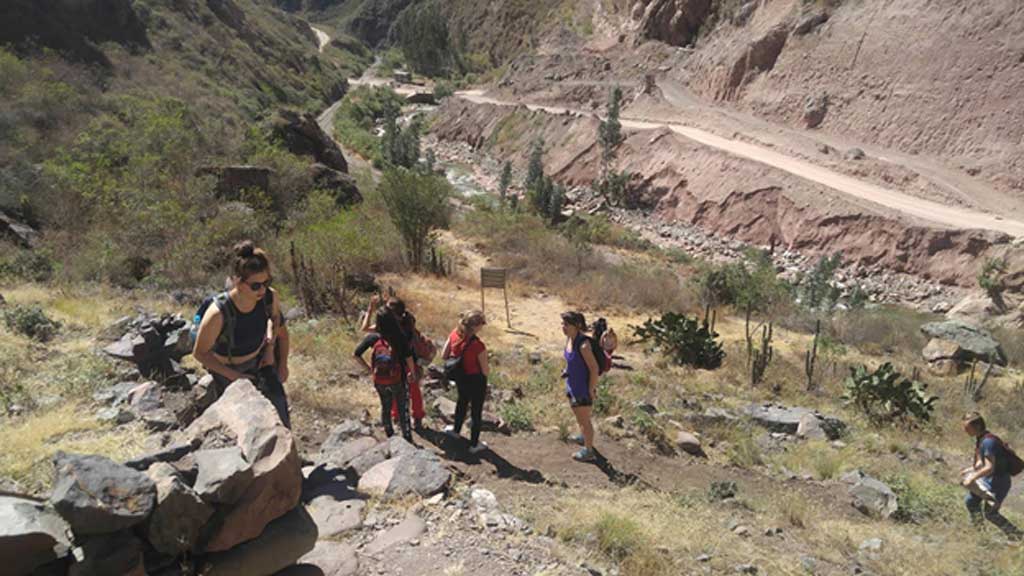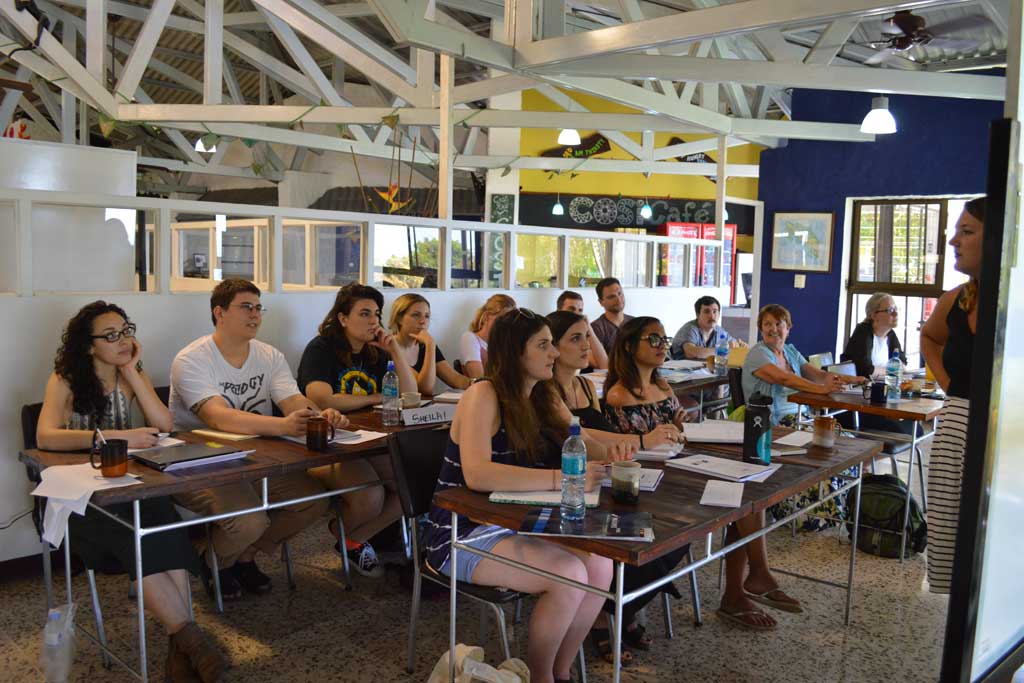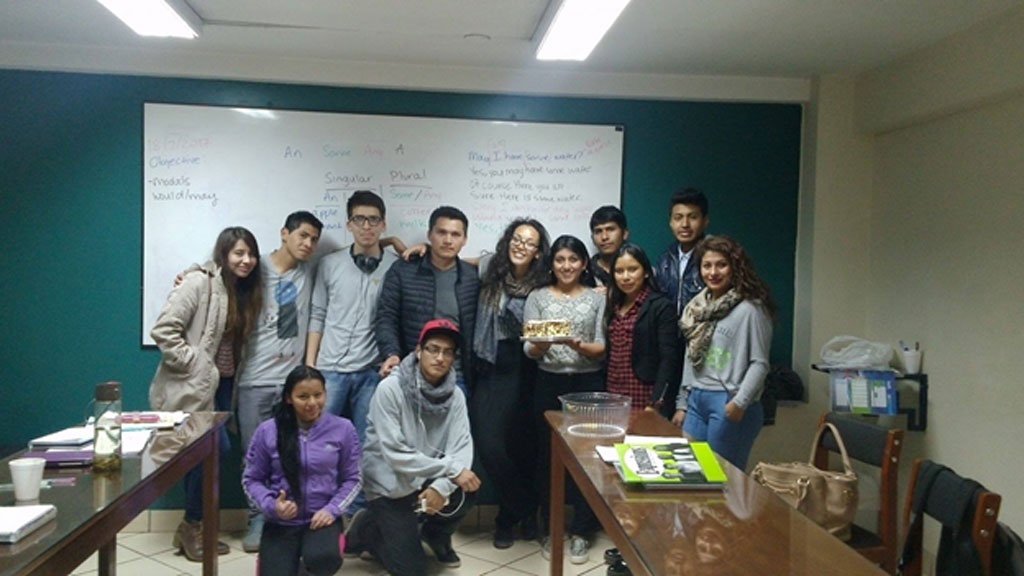Name: Tishely O.
Hometown: New York, NY, U.S
Program: TEFL Certification
Location: Manuel Antonio, Costa Rica
What encouraged you to want to teach English abroad?
I took my first solo backpacking trip through Mexico for 2 weeks in 2016. Immediately upon my return, I began looking into ways I could be abroad, specifically in Latin America, for an extended time. I knew I would need an income to support myself and already having experience in education, I figured a TEFL course would be the perfect fit.
Did you have any previous training or related experience?
I worked in higher education for 3 years, and in my last year I started teaching a Professional Career Development class which focused on job search and interview techniques. A majority of the students I worked with were new immigrants who just finished their ESL courses, though I never actually taught ESL.
What did you find most challenging about the course?
School has never really been a challenge for me. I know every learner is different, but the lecture, board work, group work, whatever it was that was thrown my way, tended to come rather easily. I was surprised at how challenging the course was though because being a native English speaker, I never REALLY had to study the grammar of English in depth. English grammar automatically made sense to me because I knew what the correct form should be having been around it my whole life. It was challenging to put myself in the position of the English learner and assign rules to the language so that scientifically it made sense. The grammar paper almost killed me! But I got it done, and the more I continued to study it, the more I understood English the way a learner would. I think it helps because it makes it easy to relate to your students in that way.
What do you wish you would’ve known before taking the TEFL course?
Honestly, I didn’t know very many details before actually taking the course. In general, I knew I was flying to Costa Rica to study to become an English teacher, but more importantly I was doing all of that near one of the most beautiful beaches in the world. I’m glad I didn’t research too much into it though because I’m not sure I would’ve went through with it had I known how much work was actually required, haha.
Were you able to find a job immediately after graduating?
I thought I would go into teaching immediately, but when you take bold opportunities, doors begin to open that you would never imagine. In college, I studied psychology and minored in English. I’ve always had a passion for writing, and a good grasp of my own writing style and technique, but I never actually thought I could make a career of it. After I graduated from the course, an opportunity to work as a junior copywriter opened up and so I decided to explore that option instead. It’s been a great experience so far, and a huge learning opportunity. I’m glad it worked out that way.
Do you think you will teach English in the future?
Yes! Actually, after a few months of copywriting, another opportunity presented itself. I was offered a temporary position to teach English in Peru–again, one of the many doors that opened. I was only contracted for a month, but it was an incredible experience. After being out of the TEFL course a few months, I definitely had to brush up. But there was no better way than by throwing myself into the work. Not only was I able to brush up and develop my skills, but I built a community and really connected with my students, some who I’m still in contact with today.
That’s amazing! Tell me about teaching…how did that experience differ from the practice you received during your course?
The practical teaching week during the course is amazing because you get a taste for what it is to work with real English students–the difficulties of eliciting, encouraging “English only” in the classroom, creating engaging lesson plans, etc. However, actually teaching doubled and tripled that workload sometimes. Instead of only having to focus on preparing for one class, I all of a sudden had 6 classes to consider in Peru! To be fair, 3 of those classes were of the same level, 2 were of another, and then I had 1 “jovenes” class, so I only really needed to prepare 3 lesson plans. Still, each class is different, and even within the same level you sort of have various levels, so there is a lot to be accounted for. It’s all a learning process though, and once you successfully teach a lesson, you’ll learn what works and what doesn’t. Most of the teachers agreed that the first 6 months act as the learning curve, but is totally worth it.
…Jovenes?
Oh! Yeah, sorry. I should explain…jovenes classes are for young learners ages 12-16. That was rough, but some people prefer to teach children. I don’t think I have the energy nor the patience, though.
Do you think a TEFL certificate should be required to teach English?
Absolutely. I can’t speak for every program, but Maximo Nivel prepared me so thoroughly. We learned about teaching strategies, classroom management, different learning styles, and connecting with your students. A full week was dedicated to learning English grammar and how to effectively teach it, and the last week was our practical teaching week when we put all of that material into practice in front of real ESL students. Also, many positions actually require a TEFL certificate to teach so it’s definitely a plus.
Are you considering teaching English in the long run? If not, why? What do you see yourself doing instead?
I’m absolutely open to it. I really do enjoy teaching. I love the variety of personalities that create the dynamic in the classroom, I love that teaching makes you realize you can’t be anyone but yourself when you’re in front of a room full of students, I love the connections and relationships that are built in the learning environment, and I love watching how the students progress, while giving them the encouragement to move forward.
I’ll actually be ending my time abroad very soon, and already have an interview lined up to teach at an English institute back in New York City, which I’m really excited about.
How do you think your experience can benefit you regardless of your future plans?
Even if you don’t end up teaching English, just that one week of practical teaching makes such a difference in your personal growth. As an instructor, even for just one hour, you are the leader of the classroom. And on that first day, you don’t know any of the students. You have nowhere to hide or run to. It’s a time where you must face who you are as a leader, instructor, and a mentor.
What advice do you have for others looking to teach abroad?
Sign up for a TEFL course before looking at job opportunities. I think people who jump straight into a position teaching English, without being thoroughly prepared, might become discouraged and miss out on a life changing opportunity. The course will give you the tools you need to succeed in the classroom, and real life perspective on what it means to be an English instructor.
My second piece of advice is to utilize the program resources. My TEFL course provided unlimited job placement assistance. My instructor looked over my resume, and provided tons of information on how to find a job abroad, or even online.
My third and final piece of advice would be to familiarize yourself with the country you’re applying to, and ask lots of questions once you go on an interview–ask about curriculums, work schedules, student and teacher evaluations, grading, and payment.




